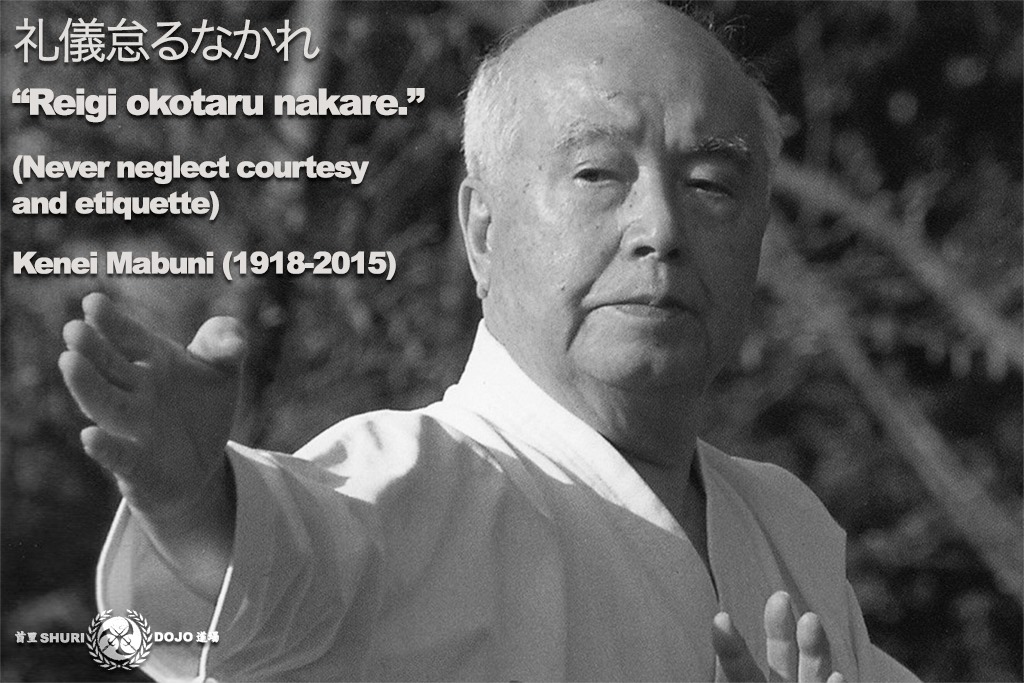
礼儀怠るなかれ ~ “Reigi okotaru nakare.” (Never neglect courtesy and etiquette) ?? ~ Kenei Mabuni (1918-2015)
.
There is a cultural element to karate which should be well observed. This cultural element involves courtesy, humility, etiquette, rank, tradition, protocol and much more.
.
Whenever or wherever you train Karate, you should follow certain etiquette and manners called ‘Reigi’ in Japanese. Each Dojo has its rules, as what to do and what not to do in the Dojo.
.
The Dojo should be treated like a special place where students should hold themselves to a higher standard of behavior. The Dojo is a place where you learn to develop both the techniques and the spirit of Karate.
.
Training in Karate is a serious matter, requiring serious commitment and effort, but also seriousness of attitude and behavior.
.
Okinawa wasn’t a part of Japan until the mid-1800s during the Edo Period. Before then it was its own nation known as the Ryukyu Kingdom.
.
Strongly influenced by its relation with China, Ryukyu had their own culture, religion, and language, so it’s not surprising that Okinawan’s are less attuned to the customs and etiquette of mainland Japan.
.
Whether it’s in the context of martial arts or in daily life, mainland Japanese tends to be more strict, formal, disciplined and follow etiquette much more rigorously.
.
On the other hand, Okinawan’s are way more relaxed than mainland Japanese. They have a very optimistic, cheerful and easy-going approach towards life and Karate training. They observe Dojo etiquette but it way less formal about it than in mainland Japan.
.
On the surface, Karate etiquette might appear to have to do with good manners and politeness. It is, but it’s also more profound than that.
.
Of course, etiquette gives us protocol and orderly ways to behave in a Karate class, it helps to provide a structured environment, it teaches us respect and courtesy, but ultimately, the etiquette we follow as Karate practitioners, is about the training of your mind. We must show respect, self-discipline and develop mindfulness.
.
Do you show good ‘reigi?”
